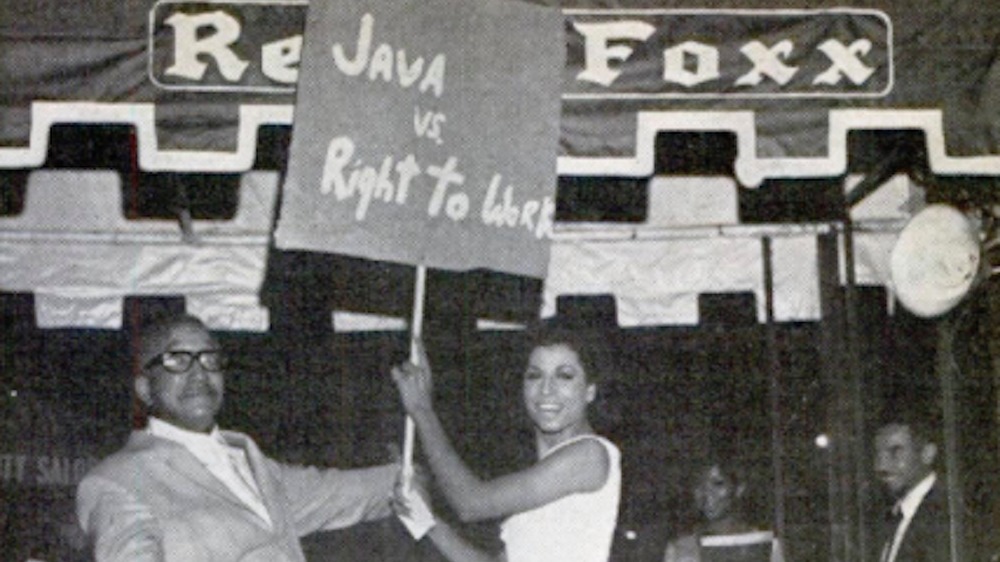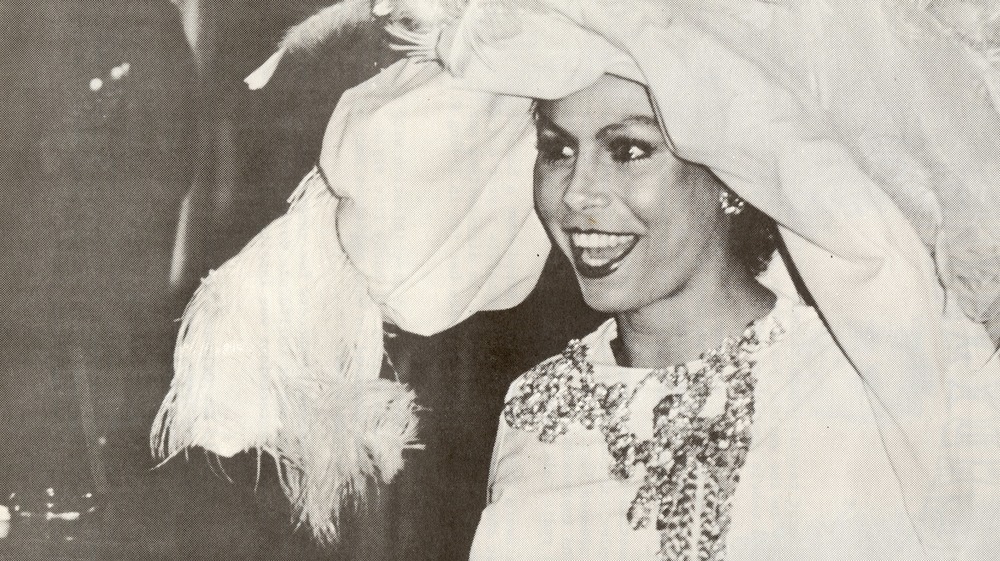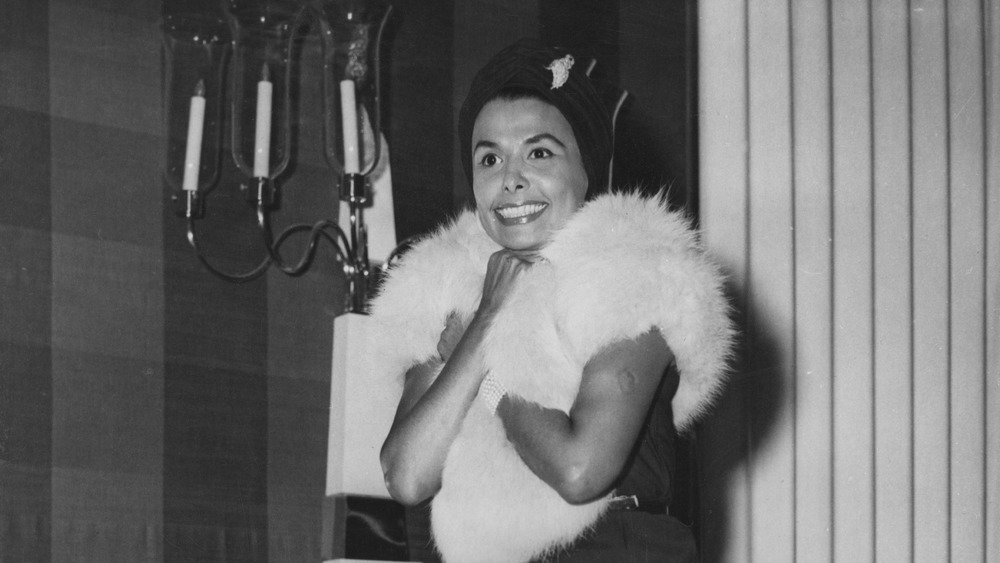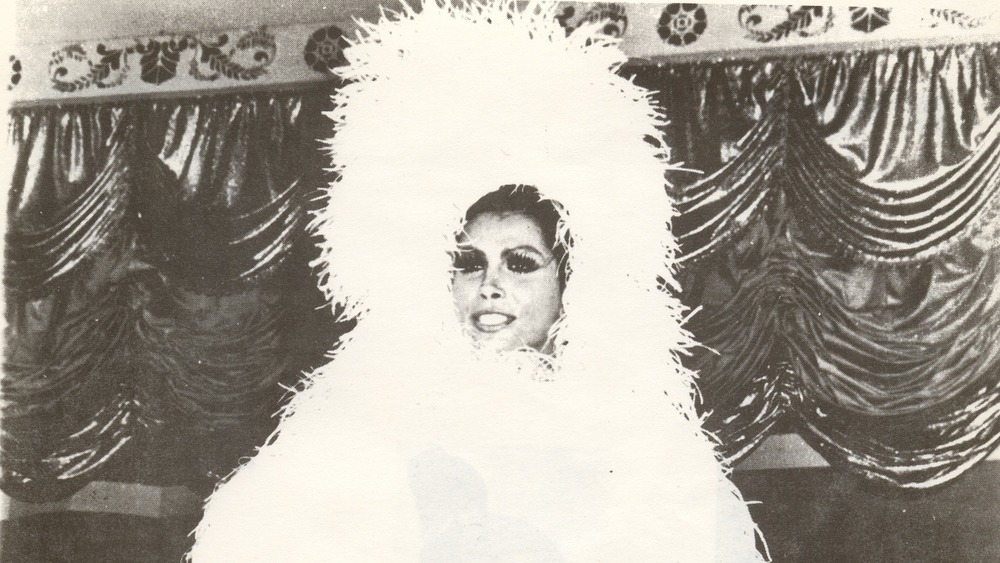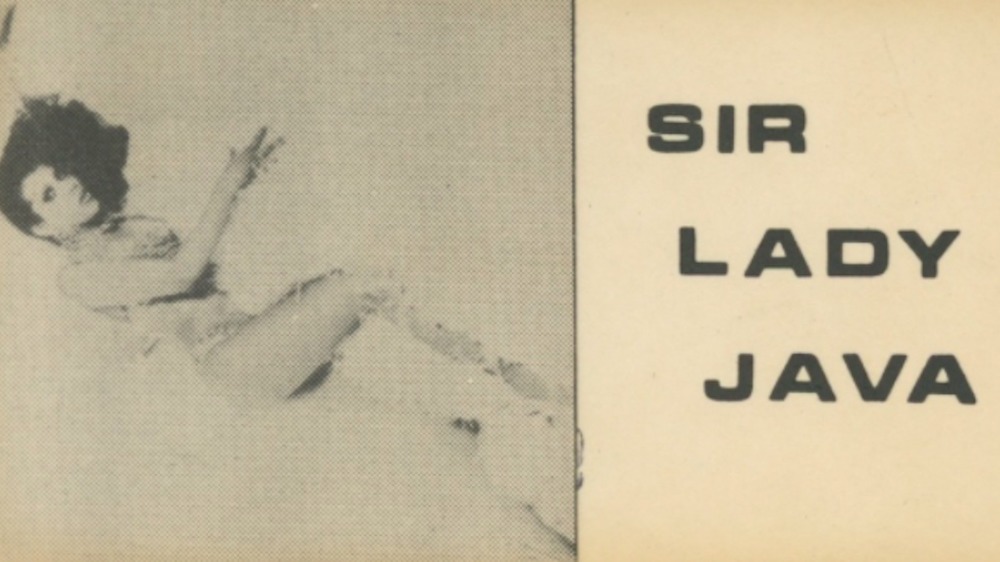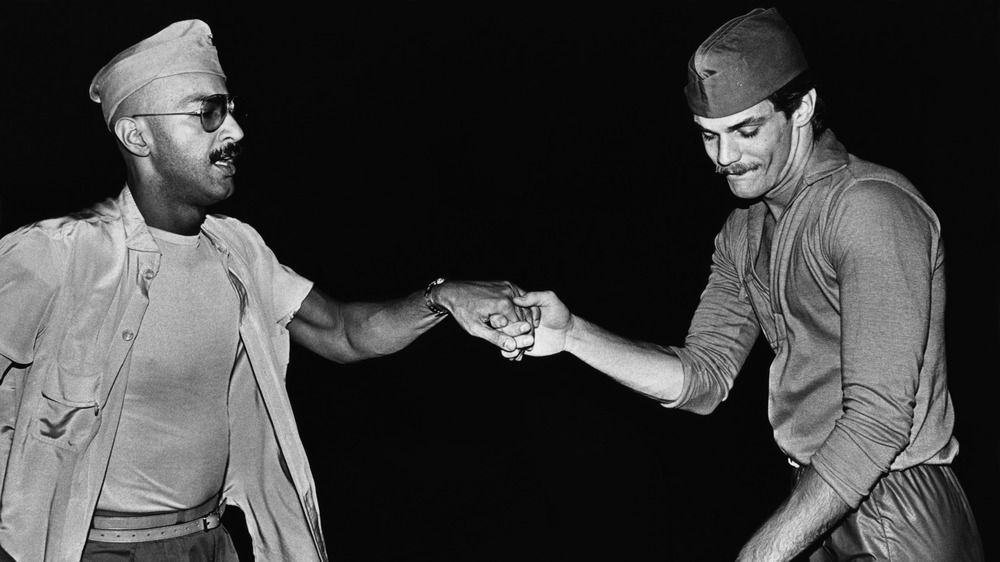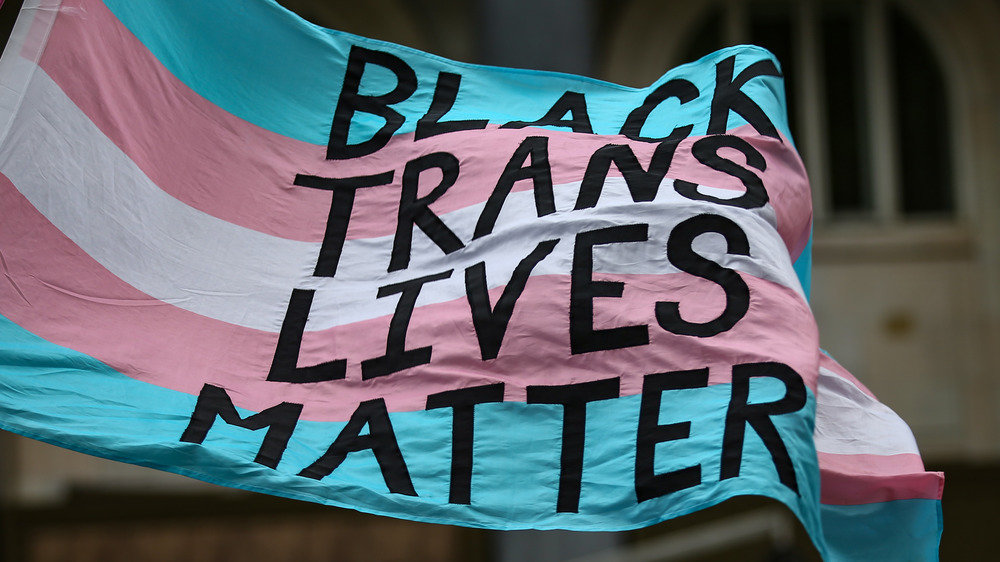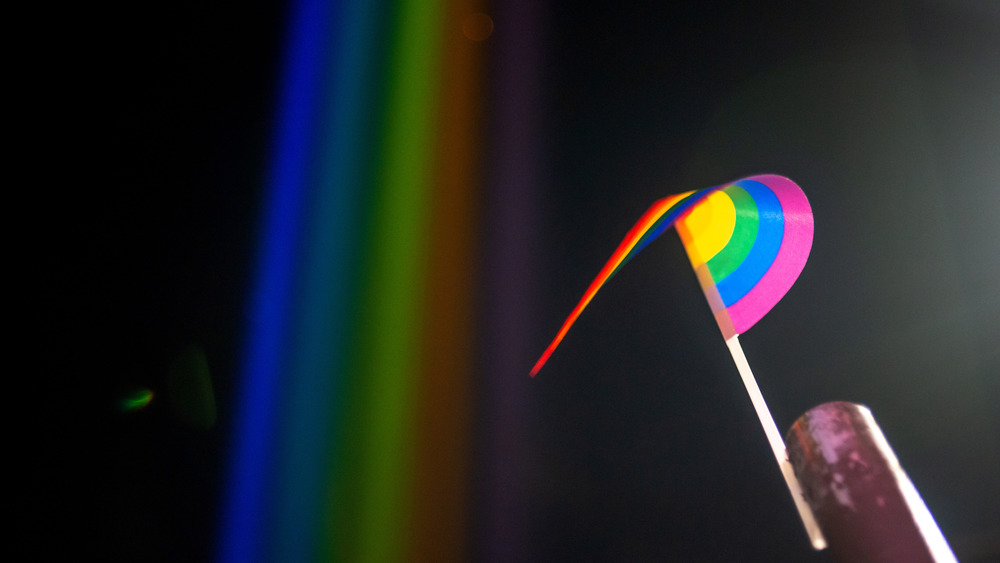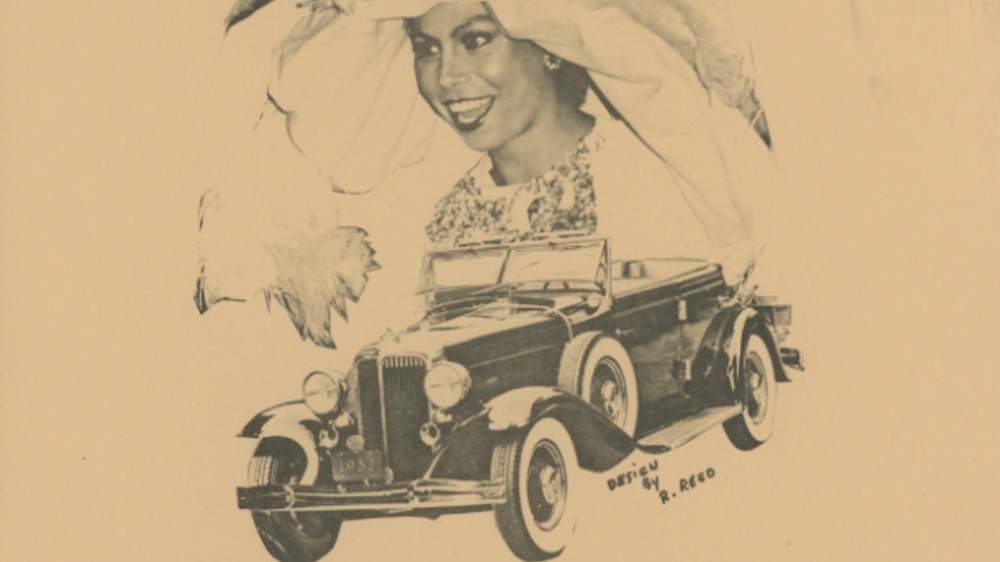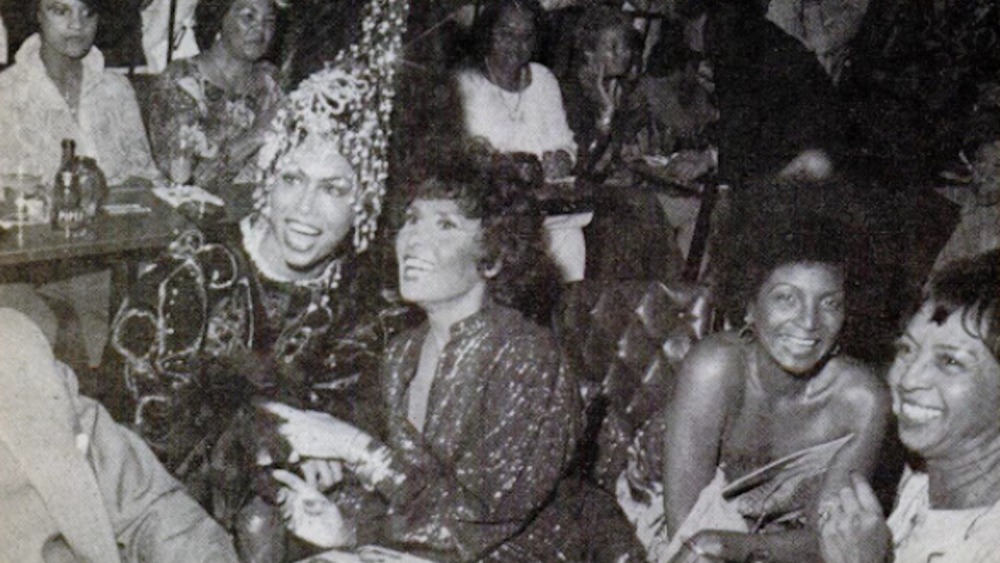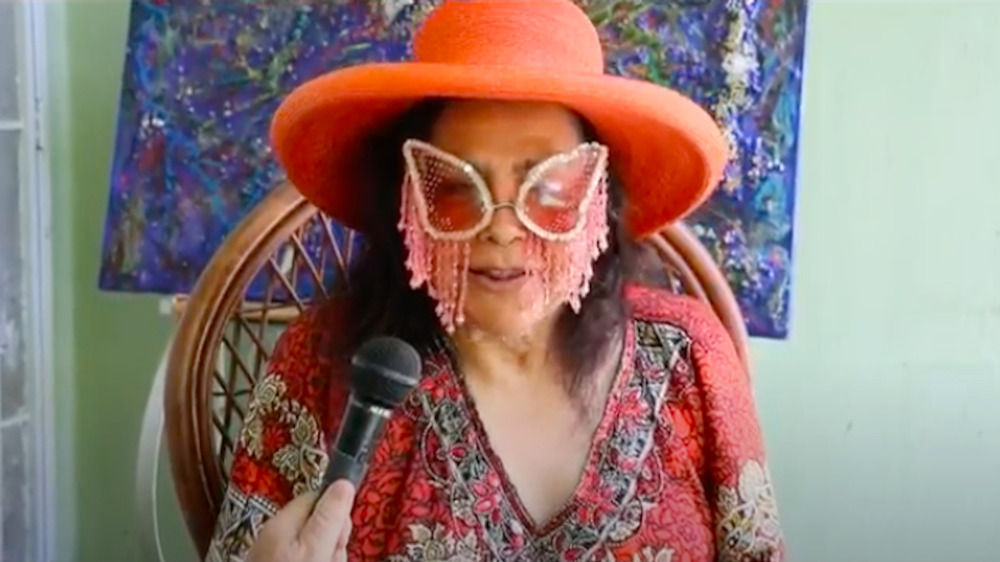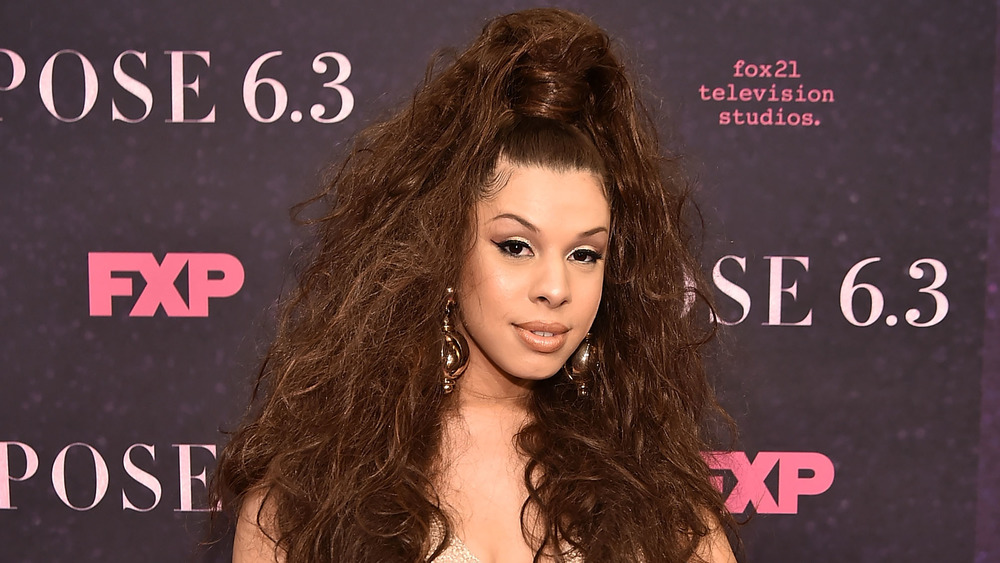The Untold Truth Of Trans Rights Hero Sir Lady Java
Although Sir Lady Java may not be a household name across the United States yet, during the 1960s she was a pivotal figure for transgender rights. Not only was Java the first transgender woman of color performer, she also protested against anti-masquerading ordinances in Los Angeles that prevented transgender people and drag queens from earning a living.
Java appeared in a variety of bars and nightclubs, but within two years, her performances caught the attention of the city officials and they tried to shut her down. Java organized rallies and protests against the Los Angeles Police Commission, and although it took another lawsuit to finally strike down the ordinance in 1969, Java's activism was pivotal towards the fight for transgender equality.
Although "the history behind Sir Lady Java's activism remains largely unknown," in 2020 it was announced that Pose's Hailie Sahar will be portraying her in an upcoming biopic. According to Java herself, "The story being told is so important, and we need to hear it." This is the untold truth of trans rights hero Sir Lady Java.
Sir Lady Java's early life
Sir Lady Java was born in New Orleans, La., in 1943, coming from a mixed ancestry of Black, Native American, French, Spanish, and German. And from an early age she knew who she was and, according to Mic, transitioned with the support of her mother early on. According to Jet, Java fell in love with Lena Horne when she was young and idolized her, later saying, "I try to look like Lena, walk like Mae West, and dress like Josephine Baker." After graduating from Riverside High School, she went into hat-making and fashion design.
Before long, Java started working in the nightclub scene in New Orleans, and her mother waited up for her every night to make sure that Java had come home safely. Java has said that her mother was one of her biggest inspirations.
Eventually, Java moved to Los Angeles in her 20s to pursue a career in the club scene, roughly around 1965. According to Java, she got her start when Gertrude Gipson noticed her waiting tables at the Redd Foxx Club and said, "Hey pretty! Can you wear a bikini?" and invited Java onstage.
She started dancing, and before long, the clubs and bars she performed at would frequently be packed to the brim with a mesmerized audience. Her act ranged from impersonations to singing and exotic dancing.
Redd Foxx Club
Sir Lady Java soon became a staple of the Los Angeles nightlife. Java was a hit at the Redd Foxx Club, and soon she'd made friends with many of its regulars, such as Richard Pryor, Don Rickles, Lena Horne, and Sammy Davis Jr. It's even rumored that she was romantically connected to some of them. Her show attracted such a diverse audience that even L. Ron Hubbard came to her performances.
The name "Java" came from a moment when she was walking down the street and a random man called out to her "Ooooh girl, you look like java baby, deep, dark, and delicious," and she thought, "Java..."
According to "Respect Your Trans Elders," by Michaé Pulido, as Java's performances became increasingly popular, she also inevitably became a "target for discriminatory legislation that was used to reinforce the gender binary."
One of the first times that the Los Angeles Police Department (LAPD) tried to arrest Java, almost 50 policemen came to the club. When she asked what her charge was, they tried to arrest her under the "three piece rule," which mandated that a person be wearing at least three articles of clothing that correspond to the sex they were assigned at birth, otherwise they'd be arrested for cross-dressing. To this, Java pointed out her socks, her man's wristwatch, and the bow-tie around her neck — all of which corresponded to the "male articles" demanded by the LAPD — and avoided arrest.
A glamorous icon
Sir Lady Java's shows were a sight to behold, and she had the ability to silence the band whenever she walked into a room. According to Java herself, she personally designed all of her own clothes for all of her shows. She'd always had a knack for clothing, and her experience with fashion design in Louisiana transferred easily to her work as a performer.
Java has said that she "enjoys making a woman beautiful," but she's also aware of the pressure on her to be beautiful as well. "I always try to look my best for my people, cause I represent the gay community and if I didn't look good, what it is for?" Java has also said that she was able to avoid many challenges because she was "pretty" and was considered to pass so well.
Many of her costumes were inspired by Josephine Baker, and using things from feathers to fishing lines, Java always made sure that her costumes shined as brightly as she did.
With her glamorous performances, Java also earned the right to be a bit of a diva. According to an interview on Pasqual Bettio's Eye on the Arts, sometimes Java wouldn't go anywhere without a limousine. She enjoyed riding in it so much that even a trip to the grocery store was required to be done in style. Unfortunately, there's also "little original media for Sir Lady Java," but during her time she was widely advertised in a variety of magazines.
LAPD's Rule 9
In 1967, the LAPD began shutting down Sir Lady Java's performances, citing a newly passed city ordinance that became known as "Rule 9." Rule 9 states that, "No entertainment shall be conducted in which any performer impersonates by means of costume or dress a person of the opposite sex." The rule also claimed that impersonators were only allowed if they had a "special permit issued by the LA Board of Police Commissioners."
Clubs were threatened with fines for hosting Java, and Redd Foxx himself was threatened with arrest and loss of his license if he allowed Java to perform on his stage. As a result, her act was dropped. According to The Stonewall Riots, by Marc Stein, Java organized a protest outside of the Redd Foxx Club in response on Oct. 21st, 1967. Java told reporters that, "The law is depriving me of my livelihood. I feel it's unconstitutional."
According to Them, despite the fact that Java had been "accepted and applauded in clubs before," now she and the clubs that worked with her were being harassed with possible fines and imprisonment. Although many of the anti-crossdressing laws had been passed at the end of the 19th century with little enforcement, during the 1960s, possibly due to the counterculture movement, there was a resurgence in the enforcement of the these laws, and many cities passed new ones to crack down on gender nonconformity.
An attack on the LGBT community
In this crackdown, police weren't only targeting drag performers. By attacking drag performers, police could target clubs and bars that catored to a homosexual crowd or that were simply safe spaces for gay people. According to the ACLU, police didn't care about the difference between gay people and trans people and instead used the law towards their own agenda of "limit[ing] the activities of 'deviants.'"
At the time, California's anti-masquerading laws had already been declared unconstitutional, so it wasn't even illegal for people to dress as any gender they wished. "With Rule 9, it's illegal to do on the stage what it is legal to do on the streets." Sir Lady Java recognized that the right of every transgender person was being violated, and in response, she "brought the LGBT community together through public rallies and protest."
During this time, abuse from police was also incessant, with unlawful assaults and arrests occurring on a regular basis. According to Java herself, "many of my brothers and sisters got killed in my time."
Interestingly, while Java was fighting for trans rights, some in the community weren't fighting for her. Virginia Prince, who founded the Foundation for Personality Expression (FPE), had no interest in Java's case, despite having championed the case of Felicity Chandelle in 1964.
Sir Lady Java teams up with the ACLU
Together with the ACLU in 1967, Sir Lady Java tried to take Rule 9 to court, challenging it as unconstitutional and claiming that it prevented her from earning an income. According to Material Life, Java was the first transgender individual that the ACLU ever defended, although it appears they had previously worked with Felicity Chandelle's case as well.
Unfortunately, her legal challenge ended up being thrown out based on a technicality, and it was claimed that as a performer, she had no legal standing to file a lawsuit against the ordinance, only a club owner could. However, no club owner came to fight on her behalf. While Java won in court her own right to work, she continued lobbying to get rid of Rule 9.
And Java's activism wasn't soon forgotten. According to Mic, her protests and legal challenge were covered by various Black magazines and gay publications, including Jet, which drew a great deal of attention towards the discrimination that was occurring in Los Angeles. Java had first appeared in the pages of Jet in 1966, with a picture of her dancing on stage on her birthday. One year later, Jet featured the now-iconic picture of Java's protest outside of the Redd Foxx Club, taken by the pioneering Black photographer Howard Morehead.
Rule 9 declared invalid
Sir Lady Java's protest got the ball rolling, but it wasn't enough on its own to get rid of Rule 9. In 1969, another ordinance was challenged when a different club owner appealed the LAPD rules that "prevented him from showing movies." The California Supreme Court agreed that the movie license rules had "arbitrary and shifting" interpretations and struck it down.
In response to this, the Los Angeles Police Commission realized that other rules could be equally challenged, so they quietly decided to allow drag shows from then on. Although day-to-day harassment from the police undoubtedly continued, people's workplaces were no longer threatened as they had been.
During this time, Java continued lobbying and protesting for the rights of trans people to work, and it was largely through her efforts that Rule 9 was finally declared invalid. With her constant rallies and protests, it was apparent to the Los Angeles Police Commission that they were fighting a losing battle.
According to Java herself, "I didn't so much need the money, because I was working, but my sisters after me needed it, and I had to make a way for drag queens to be able to work in the city of Los Angeles, and that was important to me." Java remembers when the size of the LGBT community wasn't even close to what it is now, when "no one cared, so I had to care, and I kept on, and kept on, and now [the community is] so big it's unbelievable."
Sir Lady Java continues her work
With Rule 9 being declared invalid, Sir Lady Java went back to performing, but her work as an activist off the stage continued. In August 1971, she was also the guest of honor for Full Personality Expressions's *FPE) Alpha Chapter, "showing that the chapter was more open-minded than FPE's national spokesperson, Virginia Price."
Java performed at benefits frequently, sometimes as many as two per month, and according to a four-page brochure dated between 1967-70 and featured in Transas City, she "has never turned down a benefit for a good cause."
However, sometimes Java was kept from pursuing the activism that she wanted. At one point, she was invited to be the grand marshal of a gay pride parade, but her agent thought that her appearance at such an event would hurt her and refused to let her participate.
In addition to becoming a prominent transgender activist, Java also tried her hand at performing on the silver screen with her role in the 1976 blaxploitation film, The Human Tornado. She also started touring the country and going to places like Atlanta with her performances, which were highlighted and advertised in Variety magazine. However, her performances continued to be primarily for a heterosexual and cisgender audience, but whenever a member of the LGBT community came to one of her shows, Java always made sure that they had a seat front and center.
Sir Lady Java meets her idol
In 1978, Sir Lady Java even had a chance to meet her idol, Lena Horne, when she attended a birthday party for Gertrude Gipson at the Pied Piper Club. The two immediately hit it off, with Horne saying that, "I had the feeling I was talking to a friend I had known a long time." Meanwhile, according to Jet, Java was "almost speechless. It was like a dream come true."
Horne admitted that she'd wanted to meet Java for a very long time, exclaiming that, "I think she's the most beautiful feminine thing I've ever seen in my life."
Unfortunately, despite Java's celebrity and continued statements that she lived "as a woman 24 hours every day," magazines and articles repeatedly referred to her as a man, and people sometimes wrote into the magazines to discuss. Java has admitted that it was "hard" to live in such a society, but as she told her mother, "someone has to make it better."
Sir Lady Java leaves Los Angeles
Sir Lady Java ended up leaving Los Angeles and settling in Portland, Ore., and in the late 1980s, she started keeping a relatively low profile as she recovered from a stroke that left her left side paralyzed. According to Java herself, doctors said that she had little chance of recovery, but as of 2020, Java has regained almost all of her muscle control and suffers few long-term side effects from the stroke. Java considers herself incredibly lucky, stating that, "a stroke is not to be played with, honey. Take care of yourself [and] eat right."
But despite retiring from performing, Java has remained a figurehead in the LGBTQ+ community. In the 1990s, ACT UP Los Angeles featured a portrait of Java on a poster that was carried through Los Angeles and Orange County Pride parades. According to Jerilyn Thomas, she was also the guest of honor at the 18th Annual Trans Pride L.A.
But according to Java herself, she isn't a big fan of receiving awards and prefers doing the activist work that she does in order to simply help her community. "I'm just grateful to do anything I can and when I can help my people, then that's what it's all about, that's what makes me happy."
An LGBTQ+ trailblazer finally gets her movie
Sir Lady Java has been honored several times for her activist work, and in 2020, Anthony Hemingway announced that he planned to direct a biopic about the legendary activist, where she will be played by Pose star Hailie Sahar. Java plans to be heavily involved in the project and is also excited to work with Sahar, who "has a personal connection to the story, and as a trans actress, she's excited to get the opportunity to tell it."
According to Them, cisgender actors have often been cast as transgender characters, while transgender actors, when they're even able to get work, find themselves pigeon-holed into stereotyped caricatures. Sahar's casting is a hallmark moment for transgender actors and activists who have long been advocating for respectful representation.
As such, Java's story continues to inspire and advance the rights and liberties for the transgender community. And according to Java herself, "I feel it's necessary to tell [my story] because many of my brothers and sisters got killed in my time, so I don't care who doesn't watch, I'm gonna tell it."
Although the 1969 California Supreme Court ruling came during the same year as the Stonewall Riots, the story of Java's activism is largely unknown. But just as Marsha P. Johnson's story was once dismissed, as a transgender woman of color, Java's story and significance is slowly being accorded its rightful recognition.
